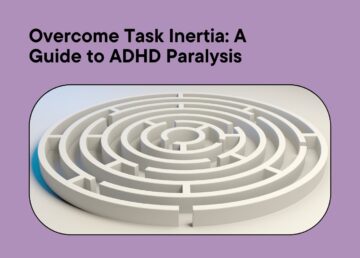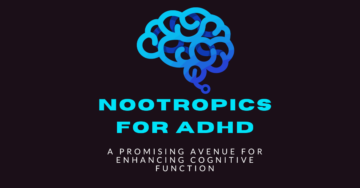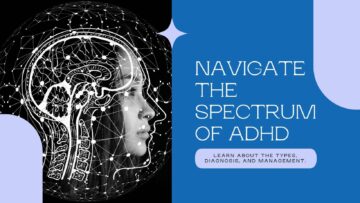
“There’s no way I will be one of the crazy ones,” I told myself.
Self-doubt had certainly taken hold by that point, but surely I wasn’t completely hopeless.
Let me go back someway – maybe things will make more sense.
I’m Katya – I’m turning 29 this year…for the 11th year in a row 🙂 Moving on quite swiftly!
When I was growing up, I was always full of energy; I’d be that one kid who never wanted recess to end, to stop playing, or to stop running.
It bled over into adulthood, too, but in a different way.
As I started to age – gracefully, I might add – I began to notice that I was very restless and fidgety.
I constantly tapped my foot while at my desk, always tensing and relaxing random muscles. I didn’t really know why I did that, and to be completely honest, I didn’t care.
It wasn’t a problem in my life; it was just… a thing?
But like most things in life, eventually, ignoring the problem came around to bite me on the ass.
Problems, problems, problems
I was constantly struggling with concentration – to the point I’d actually find myself noticing my reflection in the monitor at work and just sit there, looking at myself.
That feeling of dissociation was somewhat concerning, to be honest.
I’d started becoming frequently agitated, noticing that my restless legs were causing me issues that I never thought possible.
I wasn’t able to fall asleep properly because even though I was tired, it felt like my legs weren’t. I know that sounds stupid, but it’s like they had the mind of a marathon runner, and the rest of my body was just happy to lie down and watch a movie.
I was always quite an active person, with (almost) daily runs, regular yoga, and the occasional gym session. But it seemed like it was never quite enough to stop that feeling of restlessness.
My work was suffering quite badly as the months went on – which is probably obvious due to the lack of sleep.
But really, deep down, even though I knew there was something wrong, I didn’t seek any advice or help – because I was ashamed.
It’s not a secret that mental health issues are quite often swept under the rug.
I understand why, too. It’s pretty uncomfortable, isn’t it? We all have this inner voice telling us to just get on with it, be strong, be tough, etc.
I was brought up with the idea that I am in control of my mind – and that things like depression, anxiety, or whatever else were just made-up things to make lazy people feel better.
Looking back, I can’t believe how short-sighted I was
One night, everything became too much, and I broke down. Sitting there, crying and wondering what to do, I realized something:
Mental health needs to be treated as seriously as you would treat a broken arm.
It’s funny when you think about it. When we have a fall and injure ourselves physically, we wouldn’t dream of ignoring it. “Oh, look, I chopped off a finger. Well, better just ignore it and hope it heals.”
I know it’s a bit hypocritical for me to sit here and say this, considering where I was in the past – and that’s precisely why I am talking about it right now. The sooner you realize it, the better.
The day after my conclusion, I decided that the first step was to go to the doctor. After all, it’s what I’d do for a broken arm, too.
The doctor was actually very nice – she talked to me about my concerns, asked a lot of questions, and eventually referred me to a mental health expert.
That scared me.
I didn’t want to feel less than whole. I didn’t want to be labeled as “crazy” or anything like that.
The idea of getting a diagnosis that could eventually lead to a lifetime supply of medication was a grim prospect.
When fear becomes reality
Okay, that’s a bit hyperbolic; this isn’t a horror story.
However, the visit to the mental health professional didn’t make me feel much better. He was cold, quite interrogative in his nature, and made me feel that there definitely was something wrong with me – a stark contrast to the doctor I’d seen earlier.
So, after one visit, I went back to the doctor to ask for a different referral. Turns out you can actually do that, and most doctors are happy to get feedback about these things. ✨ the more you know ✨
The second psychiatrist was much, MUCH, more helpful. He ran some questions past me and did some digging of his own into my lifestyle and work-life balance.
He also asked me about my childhood. Remember what I said earlier?
“When I was growing up, I was always full of energy…..never wanted to stop playing”
That’s when he smiled. I understood immediately that he knew what to do.
The point of no return
I was diagnosed with ADHD – and you know what? I was happy. I finally understood what was causing me to feel the way I did.
So, what was the next step? The doctor mentioned a few options, from medication to psychoeducation, but the idea that caught my attention most was something called cognitive behavioral therapy (CBT).
That sounded like something I’d like.
So I did what anyone would with this information. Hit up the internet.
I found a lot of competing solutions offering CBT tools, but one that stood out the most based on the reviews I saw was an app called Sensa.
It’s essentially a companion app that provides you with a personalized action plan to fight against numerous mental health issues, including ADHD, general anxiety, procrastination, and more.
The plan is full of valuable daily content and even has extra activities to help you get through stressful moments. Personally, I love breathing exercises!
Finally, on the road to recovery
For me, Sensa was quite literally a Godsend. Since using it, I’ve felt more in control over my actions – and I’m still only a few months in!
My concentration levels are getting back to normal – now, the only time I stare into the monitor is to check out my incredible bangs; I mean, who wouldn’t?
I feel inspired to try new things every day now – no longer do I sit constantly fidgeting my way through meetings or boring work calls. I’m able to actually focus on what I want to do.
By identifying what is causing you problems, you start the road to solving them.
Sensa takes your individual needs into account and tailors a plan specific to them – this is important, as everyone suffering from ADHD displays their symptoms in different ways, and as such, the treatment needs to be flexible. So, what do you have to lose?





